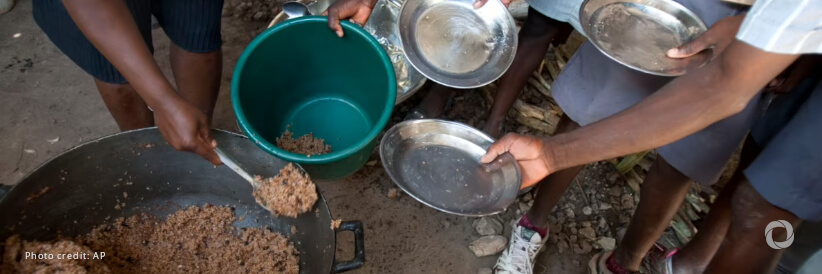The World Bank‘s Board of Executive Directors approved additional financing of US$50 million for the Emergency Resilient Agriculture for Food Security Project (PARSA) in Haiti. The additional financing will support access to nutritious food with a special focus on school feeding and the capacity building of relevant national actors. It will also increase climate and nutrition-smart agricultural production, as Haiti has one of the highest levels of chronic food insecurity in the world.
“Haiti continues to struggle with lingering political and institutional crisis, gang violence, and vulnerability to natural hazards that have worsened the food security situation of almost half of the country’s population,” said Laurent Msellati, World Bank Country Manager for Haiti. “With this additional financing, the World Bank is supporting the Ministry of Agriculture to improve resilient food production systems and investing in human capital to promote inclusive economic growth “.
According to the World Food Program (WFP), 22 percent of Haitian children are chronically malnourished. While agriculture is critical to addressing food insecurity in Haiti, as it contributes to 20 percent of the country’s GDP and employs over two-fifths of the workforce, the sector continues to be beset by problems including drought, low rainfall, and watershed degradation.
The additional financing of the Emergency Resilient Agriculture for Food Security Project (PARSA) will add around 120,000 beneficiaries to the initial project including 100,000 children per year who will access a hot dish prepared with local food products. This new financing will also add 4,000 ha of agricultural land which will benefit from technological packages and access to water, thereby increasing productivity.
It will also generate 4.5 million person-workdays through labor-intensive participatory community work to strengthen rural productive infrastructure and have a direct impact on rural households and resilience to weather events and climate change trends. Around fifty percent of the workers will be women.
The initial Emergency Resilient Agriculture for Food Security project (PARSA) was approved by the Board on March 17, 2022, in the amount of US$102 million and targeted 450,000 people, of which 35 percent were women. The project is being implemented in the Departments of the Sud, Grand’Anse, Nippes, and Centre, and will be extended to the Nord-Ouest.

